
MENUMENU
TALK TO AN EXPERT
Special Hours: 7AM – 6PM PST
TALK TO AN EXPERT
Special Hours: 7AM – 6PM PST
Anyone who uses batteries for their home, RV, or boat knows that lithium batteries have revolutionized the power world in recent years. Unfortunately, they may not know much beyond that. Educating yourself about lithium battery basics can feel like learning a new language, especially for the less tech-savvy. But fear not. We’re breaking down those seemingly-nerdy but ultimately crucial terms and concepts that every current and would-be lithium battery owner needs to know.
To get started on your lithium battery basic training, let’s first understand how they work. All batteries are made up of a positively charged anode, a negatively charged cathode, a battery electrolyte, and a separator. Lithium batteries are no different, except for the use of lithium, as well as certain other combinations of materials in the cathode and anode.
Lithium ions move through the electrolyte solution, creating electricity. Terminals on the battery are then connected to the item needing power, completing the circuit.
The short answer is anything you can use a lead-acid battery for — and so much more!
Lithium batteries are an increasingly common energy storage solution for personal renewable energy systems like windmills or solar panels. They’re also the top choice for portable power systems, like those found in RVs or sailboats. Best yet, they’ll work better than their lead-acid counterparts, with the ability to operate in more extreme conditions and be fully discharged without damage.
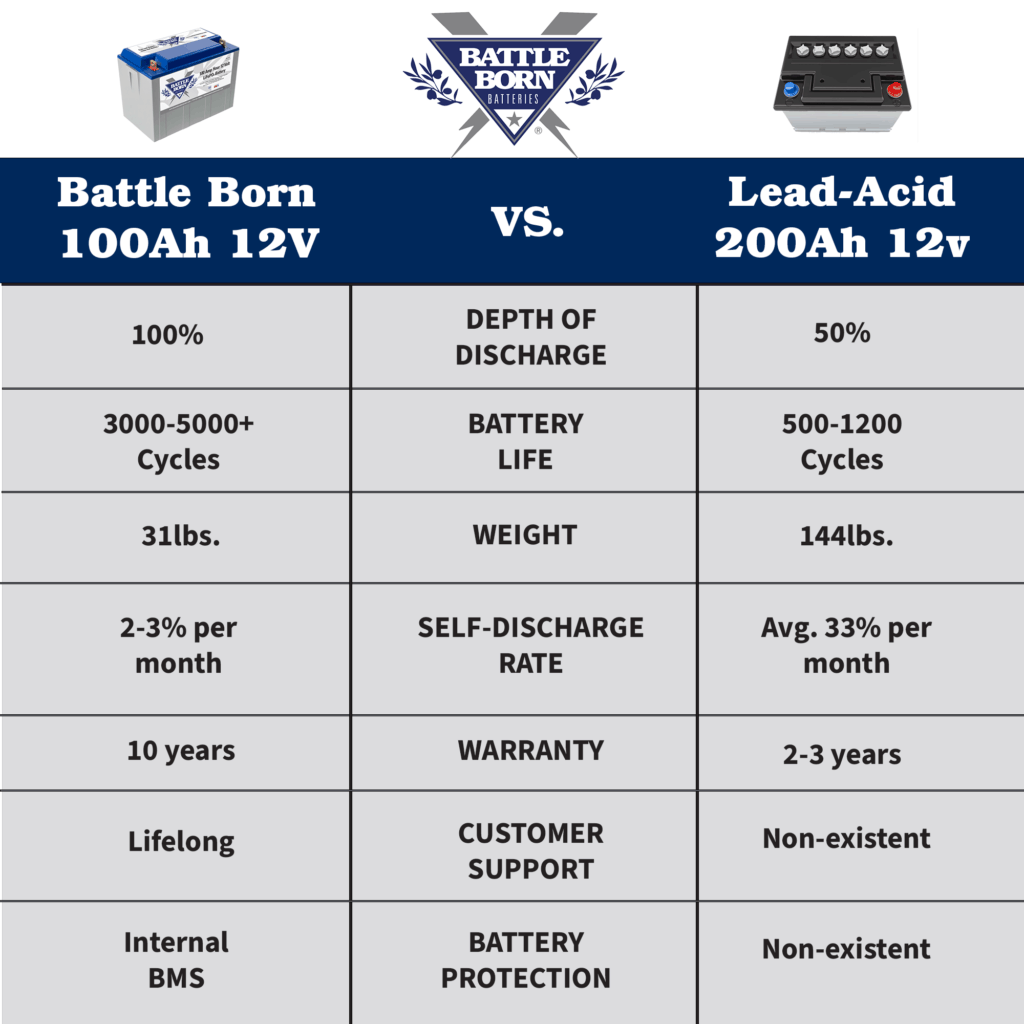
Lead-acid batteries have been around for generations, but lithium remains a relatively new technology. This can make even tech-savvy buyers feel a bit out of their depth. However, these five terms and concepts can provide a great base for understanding them.
When dealing with power generation systems like solar or wind, it’s crucial to remember that these systems will keep producing energy as long as the sun shines or the wind blows, respectively. This is all well and good up to the point where your batteries are fully charged. Beyond this point, you can risk serious damage to your batteries through overcharging.
Conversely, if all the energy is drained from the battery through unchecked usage, you can damage the internal components.
Battery management systems (BMS) prevent this potential hazard. They sit between the power generation system and the batteries. They regulate the flow of electricity between them. A BMS is also valuable for preventing the flow of electricity back to the panels or windmill during periods when the system isn’t generating energy. In addition, they monitor crucial things like temperature and loose connections, helping you resolve small issues before they become big ones.
In this way, a BMS is like the “brain” of the battery. It can help protect the battery’s health and longevity. It also makes these batteries safer. There are potentially flammable components inside batteries, which means it’s critical to keep the batteries running optimally for safety.
Many folks may think all lithium batteries are the same. This isn’t the case.
The next basic lithium battery term you need to know is about lithium chemistry. There are six different main types of lithium chemistry. Each has its own unique advantages and disadvantages. These chemistries are lithium cobalt oxide (LCO), lithium manganese oxide (LMO), lithium nickel manganese cobalt oxide (NMC), lithium nickel cobalt aluminum oxide (NCA), lithium titanate (LTO), and lithium iron phosphate (LFP).
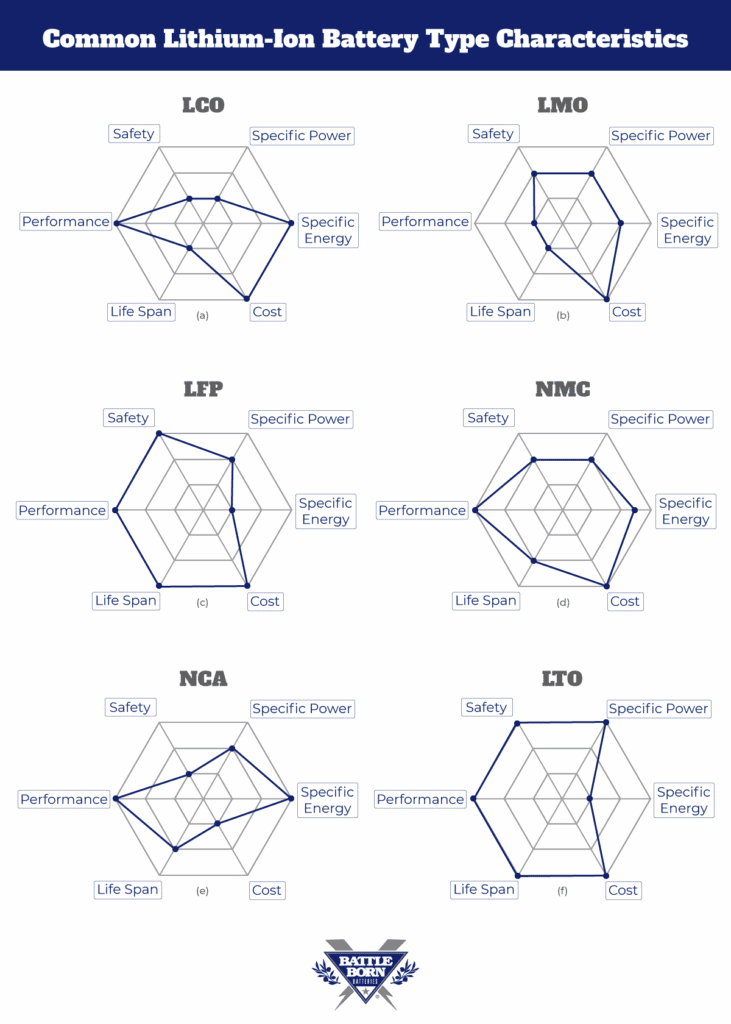
Lithium iron phosphate (often referred to as LiFePO4 or LFP) is the chemistry used in Battle Born Batteries. Lithium iron phosphate boasts an extensive lifespan, high performance and efficiency, and thermal stability. With low-resistance materials, they’re among the safest lithium battery types. They can also last thousands of cycles, far longer than some competitors. LiFePO4 batteries are also among the most competitive price-wise. Their downsides are limited to decreased performance in some very cold weather conditions.
As for the other types, you’re more likely to find them in applications like small electronics, portable power tools, or light transportation like e-bikes or electric scooters. They tend to have a shorter lifespan, lower voltage, and worse efficiency than LiFePO4.
One of the most serious potential risks of large batteries is thermal runaway. The process starts when a battery operates above its safe temperature, which sparks a chemical reaction within the battery. Damage to the battery can cause this, as well as overcharging or charging too quickly.
This reaction generates heat, further raising the battery temperature and causing more reactions. This process can rapidly cause batteries to catch fire at extremely hot temperatures — so hot they’re very difficult to put out. Naturally, this is something every battery owner should avoid.
Understanding the basics of thermal runaway in lithium batteries requires knowing about the terms discussed in #1 and #2 above. While this chain reaction can happen in any battery, thermal runaway in lithium-ion batteries has gotten some bad media in recent years due to cell phone and hoverboard batteries causing fires on planes.
However, to understand the risk we have to understand which lithium chemistry is in the batteries and whether or not a reliable BMS is in place.
This is really where the lithium battery BMS comes in. Unlike lead-acid batteries, our Battle Born Batteries LiFePO4 batteries all have built-in battery management systems to protect themselves from overcharging and undercharging situations that could cause thermal runaway. We test every single battery as part of our extensive quality assurance process before it’s shipped.
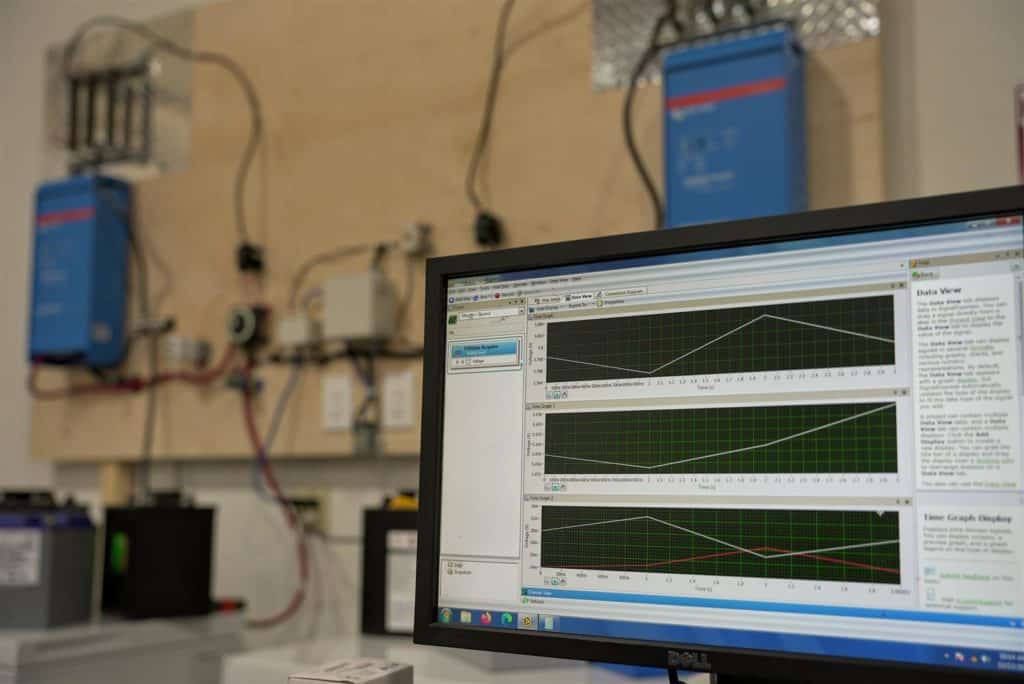
Peukert’s Law describes a phenomenon that many battery users may have experienced when drawing high loads from their batteries — shorter than expected lifespan. The law explains how, as the rate of discharge increases, the resistance within the battery increases, leaving you with fewer amp-hours than expected.
The good news? This sometimes frustrating process only occurs in a significant way in old-school lead-acid batteries. Lithium users can rest easy thanks to differences in chemistry that preserve essentially full capacity regardless of how fast you’re draining your battery.
This is one of the basic benefits of lithium over lead-acid batteries that can be hard to really appreciate without an understanding of the Peukert effect. Once learned, however, it’s a major game-changer!
The battery world is changing and developing every day, with new technology creating innovative solutions to power problems. Our parent company Dragonfly Energy is working on the next wave of lithium batteries, known as solid-state batteries.
These batteries replace the traditional liquid electrolyte used in battery chemistry with a one-of-a-kind solid one. These solid-state batteries will be lighter and smaller than other lithium batteries, as well as being completely non-flammable. We are excited about how this incredible advancement could change the world of lithium batteries.
You don’t have to be a psychic or a futurist to see that old-school lead-acid batteries are quickly being replaced by superior technology. People no longer have to accept poor efficiency, higher wait times, and more shallow discharges in their batteries.
Lithium batteries are the future, poised to one day entirely replace traditional ones. Taking the time now to learn the lithium battery basics is worthwhile as you’ll find yourself ahead of the game while many others play catch-up. Remember these terms and concepts, and you’ll be ready to take advantage of the growing drift toward a lithium battery world!
We know that building or upgrading an electrical system can be overwhelming, so we’re here to help. Our Reno, Nevada-based sales and customer service team is standing by at (855) 292-2831 to take your questions!
Also, join us on Facebook, Instagram, and YouTube to learn more about how lithium battery systems can power your lifestyle, see how others have built their systems, and gain the confidence to get out there and stay out there.
Shop Best Sellers

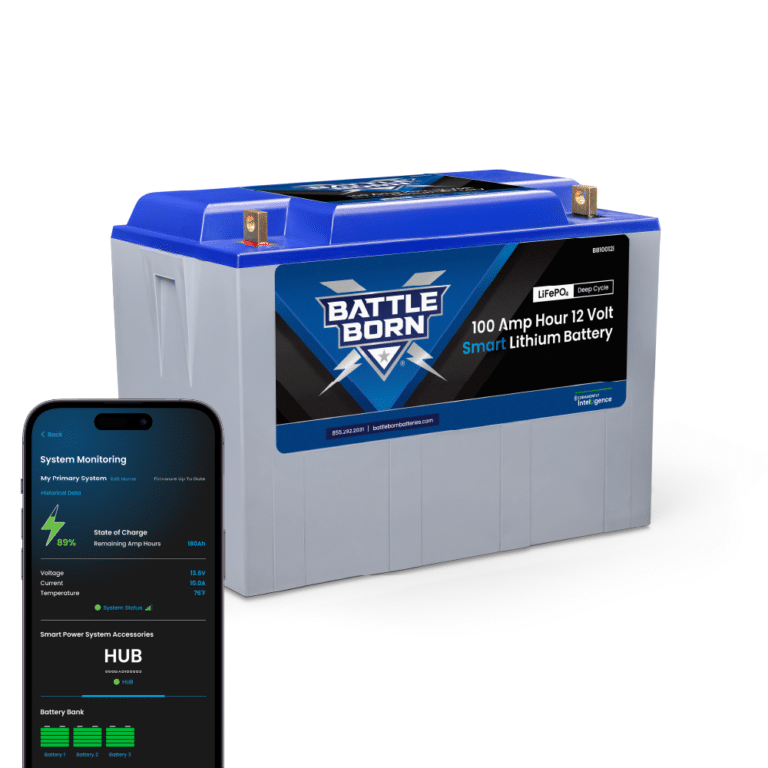

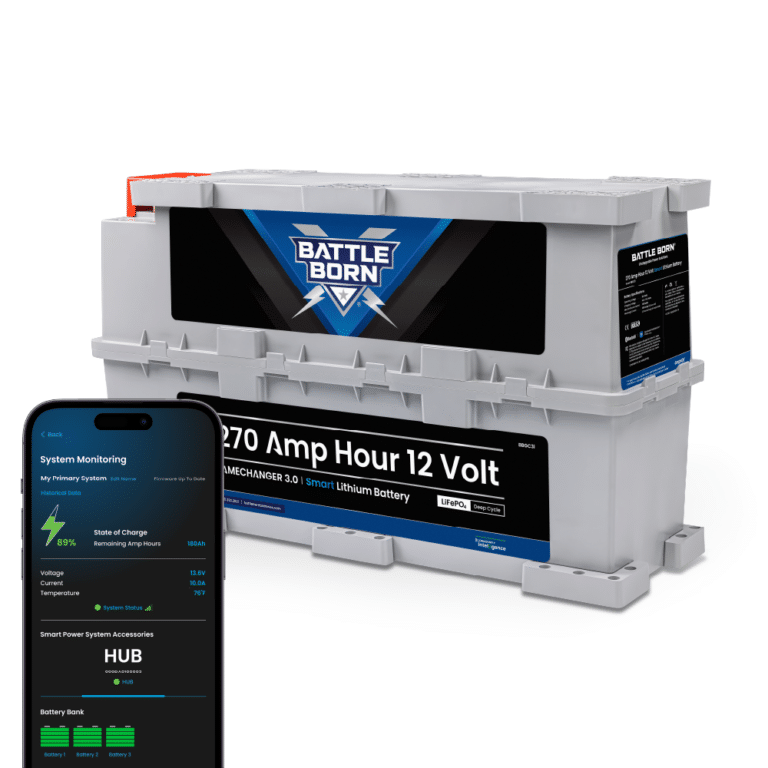




Ask a technical specialist now at 855.292.2831
Stay in the Know